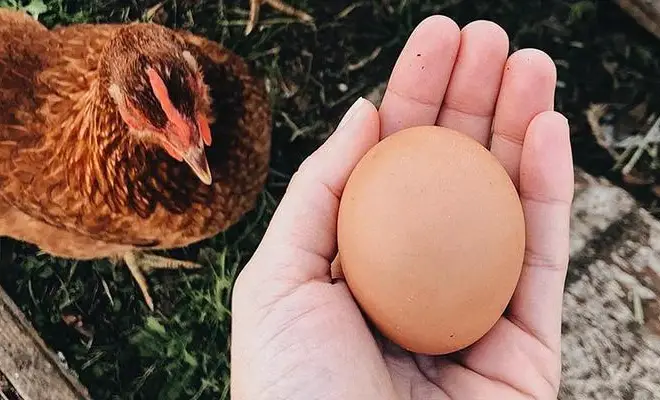5 Reasons Why You Should Raise Welsummer Chickens!

Want beautiful birds with rich, chocolate-colored eggs? Look no further than the Welsummer chickens! These Dutch beauties are named after their village of origin.
The breed comes with stunning plumage! The hens sport a dark brown base with golden highlights. While roosters rock a vibrant mix of chestnut brown and beetle green. But Welsummers are more than just eye catchy. These friendly fellas are known for their calm and curious nature. So, they can be a part of your backyard flocks. Plus, they’re excellent egg layers. So, poultry’s purpose will be fulfilled, too!
Sound like the perfect feathered friends? Read on to discover more about such chicken breeds. Learn why you should raise them!
Table of Contents
Welsummer Chickens – A Short Profile

Thinking of adding some feathered friends to your backyard flock? Look at the review table to get some important facts about the breed.
| Feature | Description |
|---|---|
| Origin | Welsum, Netherlands |
| Temperament | Friendly, docile, curious |
| Activity Level | Active, enjoys free-ranging |
| Egg Laying | 200-250 medium-sized, dark brown eggs per year |
| Climate Tolerance | Cold-hardy, adaptable |
| Broodiness | Goes broody occasionally, not known for good mothering instincts |
| Roosters | Can be noisy |
| Flight Ability | Poor flyers |
| Lifespan | 6-8 years |
What are the History And Location Of the Welsummer Chickens?
The Welsummer chicken boasts not only unique beauty and bountiful eggs but also a rich history deeply rooted in the Netherlands. So, before welcoming these charming birds into your flock, let’s embark on a journey to their Dutch origins!
From Village Beginnings to Global Recognition
Nestled in the quaint village of Welsum, these beauties first emerged in the early 20th century. Local farmers crossed breeds like Rhode Island Reds, Barnevelders, and Cochins, aiming for hardy, productive chickens with striking looks.
By the 1920s, their distinctive features and impressive egg-laying abilities led to their official recognition in the Netherlands.
Soon, their fame crossed borders, captivating chicken enthusiasts in the UK and eventually reaching the shores of the USA in the late 1920s.
A Flourishing Breed in Diverse Landscapes
Welsummers are known for their adaptability, thriving in various climates across the globe. From the cool Dutch countryside to warmer American backyards, they adjust well, making them versatile flock additions.
Today, these Dutch delights continue to charm backyard flocks worldwide, thanks to their friendly personalities, stunning plumage, and of course, those captivating chocolate-colored eggs.
Physical Appearance of the Welsummer Chickens

The Welsummer’s stunning appearance is one of its defining features. So, let’s take a closer look at the unique plumage of male vs female Welsummer chickens:
The Female in Brown
- Head & Hackles: A regal golden brown, adorned with delicate black striping on the lower neck.
- Chest & Breast: A rich, vibrant chestnut-red that stands out against her darker base.
- Back & Wing Bow: A beautiful blend of dark red-brown feathers, subtly speckled with black for a textured look.
- Tail & Wing Feathers: A striking combination of black and brown, adding depth and contrast to her overall palette.
- Thighs & Abdomen: Soft brown with subtle slate-gray shading, completing her elegant look.
The Male in Red
- Head & Hackles: A fiery mix of red and orange hues, with minimal markings for a bolder statement.
- Breast & Thighs: A sleek black base adorned with subtle brown flecks, exuding a confident air.
- Tail: A captivating glossy beetle-black, a true showstopper among his features.
Shared Traits
- Both genders sport a single comb, adding character to their faces.
- Medium-sized wattles complete their expressions.
- Almond-shaped and red, adding a delicate touch.
- Short, strong, and horn-colored, perfect for foraging and scratching.
- Bright yellow, fading to pale yellow in summer, adding a touch of sunshine.
- A mesmerizing reddish bay conveys their curiosity and alertness.
Are Welsummer chickens autosexing?
Yes, Welsummer chickens are considered partially autosexing. This means that the genders can be distinguished based on their down feather patterns at hatch, although it’s not 100% accurate.
Here’s a breakdown:
Females:
- Darker heads with sharp “eyeliner” markings starting at the beak.
- Clear, continuous dark stripes along the back.
- Generally less fuzzy patterns.
Males:
- Lighter-colored heads.
- Hazier, fuzzier patterns with broken stripes.
- “Eyeliner” starts behind the eye.
While these indicators are helpful, accuracy can vary. Some chicks don’t exhibit definitive features, and even experienced breeders can make mistakes.
For more reliable sexing:
- Consult a professional chick sexer.
- Wait until chicks are older for clearer feather development and comb/wattle differences.
Types of Welsummer Chickens: What are the variations of them?
Besides the common Partridge Welsummer (brown & black), there are some other common variations:
- Silver Duckwing Welsummers: Hens are silver-gray with brown markings, roosters like Partridge but with silver neck & back.
- Gold Duckwing Welsummers: Similar to Silver Duckwing, hens are golden-brown instead of silver-gray.
Here is a video you can enjoy about the Welsummer chicken breed.
The Personality of the Welsummer Chicken Breed
Beyond their captivating looks, Welsummers holds a special place in chicken coops thanks to their delightful personalities. So, let’s explore the traits that make these birds such endearing companions:
Calm and Docile Demeanor
These Dutch beauties are renowned for their calm and gentle nature. Unlike some breeds known for being flighty or nervous, Welsummers tend to be relaxed and approachable, making them suitable for families with children or those seeking laid-back feathered friends.
Curious and Active Explorers
Welsummers possess a natural curiosity, spending their days happily exploring their surroundings. They enjoy foraging for treats in the backyard, scratching for hidden treasures, and keeping themselves entertained with their inquisitive nature.
Friendly and Communicative
These chickens love to chat! They’re not shy about clucking and chirping to let you know what’s up. It might sound a bit noisy, but it’s just their way of saying hi and sharing their thoughts.
Adaptable and Easygoing
No matter where you keep them, Welsummers are happy campers. They’re cool with living in big yards or smaller spaces. They just go with the flow and enjoy life wherever they are.
Reproduction And Breeding Of Welsummer Chickens

Considering adding Welsummer chicken to your flock and witnessing their next-generation hatch? There are some key things to know about their reproduction and breeding practices.
When does the Welsummer Chicken start breeding?
Welsummer hens typically reach sexual maturity around 5-6 months old, so this is when they might start laying fertile eggs if paired with a rooster. The Welsummer mating ratio can be 9 females and 1 male. However, the actual breeding season depends on several factors like daylight hours, breed variety, and individual maturity.
How long does it take for a Welsummer Chicken’s eggs to hatch?
The incubation period for Welsummer eggs is the same as most chicken breeds, which is 21 days. It’s almost the same as other breeds hatching time.
How to breed Welsummer Chickens?
Breeding chickens requires responsible planning and knowledge. Here’s a simplified overview:
- Ensure a healthy flock: Maintain a ratio of 1 rooster to 8 hens, and provide proper nutrition and space.
- Monitor maturity: Wait until hens are around 5-6 months old before expecting fertile eggs.
- Consider hatching options: Welsummers can be broody, but not always good mothers. Plan to use an incubator or a reliable broody hen from another breed if you want chicks.
- Gather information: Research breeding practices, responsible chick care, and potential challenges before starting.
How many eggs does a Welsummer Chicken lay?
A Welsummer hen can lay 200-250 medium-sized eggs per year. However, this number can vary depending on age, health, environment, and other factors.
Which color eggs do Welsummer Chickens lay?
The most distinctive feature of Welsummer chickens is their unique egg color. They lay beautiful dark brown eggs, often with speckles, ranging from chocolate brown to terracotta. This makes their eggs highly sought-after by many chicken enthusiasts.
Does Welsummer Chicken Have Any Specific “Best” Purpose? 5 Key Facts!

Welsummers are beloved chickens for various reasons. Rather than saying they excel in one specific purpose, they truly shine in their versatility as backyard flock additions. So, What are Welsummer chickens known for?
Egg-cellent Layers
With a laying potential of 200-250 dark brown, beautifully speckled eggs per year, Welsummers satisfy the desires of many egg-loving chicken enthusiasts. Their high laying numbers and unique egg color make them stand out.
People wonder, Are Welsummer chickens good for meat or not? Well, no, Welsummer chickens are excellent egg layers, but not a breed for meat production. It’s due to their smaller size compared to dedicated meat breeds.
Friendly and Calm Demeanor
You may wonder, are Welsummer chickens good pets? Welsummers are known for their calm and docile nature. This makes them perfect for families with children or those seeking laid-back feathered friends who enjoy human interaction.
Active and Curious Explorers
These birds are naturally curious and active, happily foraging, scratching, and keeping themselves entertained. This adds a lively and charming energy to any backyard flock.
Adaptable and Easygoing
Whether free-ranging in spacious areas or content in well-maintained runs, Welsummers adjust well to different environments. This makes them suitable for various setups, ensuring they thrive in happy and healthy flocks.
Cold-Hardy and Disease-Resistant
These Dutch beauties are relatively cold-hardy and known for being less susceptible to some common chicken diseases, adding to their overall ease of care.
How To Raise the Welsummer Chickens?
Excited to welcome these Dutch delights to your flock? Here’s a simplified overview of Welsummer care:
- Ensure a secure coop with enough space, nesting boxes, and proper ventilation.
- Feed them balanced layer feed with treats and provide clean water and grit.
- Regularly monitor their health, clean the coop, and offer dust baths.
- Roosters can be noisy, so check local ordinances.
What Are Some Pros And Cons of Welsummer Chickens?

Choosing Welsummers depends on your priorities. But be sure you know about their good and bad, first. However, here are the reasons why you raise them or not –
Pros of Welsummer chicken
- Beautiful, dark brown eggs
- Great for families and those seeking relaxed birds
- Adds liveliness and entertainment to your flock
- Thrives in various environments
- Less prone to some health issues
Cons of Welsummer chicken
- Not ideal if meat production is your main goal
- Consider local ordinances and your neighbors
- Not known for exceptional mothering instincts
- Less than some dedicated laying breeds
- Potentially flighty
Related Articles:
- Are Mallards Migratory Birds
- Everything About The Classic Sussex Chicken Breed
- Beauty Of Buff Brahmas Chicken
FAQs
You can also check out some related queries I included below. Get more facts about the Welsummer chicken breed.
Q. Do Welsummers need a rooster to lay eggs?
No, hens will lay eggs regardless of having a rooster. However, a rooster is needed for fertile eggs if you plan to hatch chicks.
Q. What do Welsummers eat?
They thrive on a balanced commercial layer feed, supplemented with fresh fruits and vegetables for treats.
Q. Are Welsummers good foragers?
Yes, they love to forage and explore, so providing them with opportunities to do so is crucial for their well-being.
Final Word
Raising Welsummer chickens offers a great combination of beauty, productivity, and friendly temperament. So, they can be an ideal pick for backyards. From their stunning plumage to their calm demeanor and excellent egg-laying capabilities, Welsummers are ideal additions.
But remember, roosters can be noisy and they might be a bit flighty. But with their adaptability, versatility, and unique egg color, these Dutch beauties are something standout for sure!






